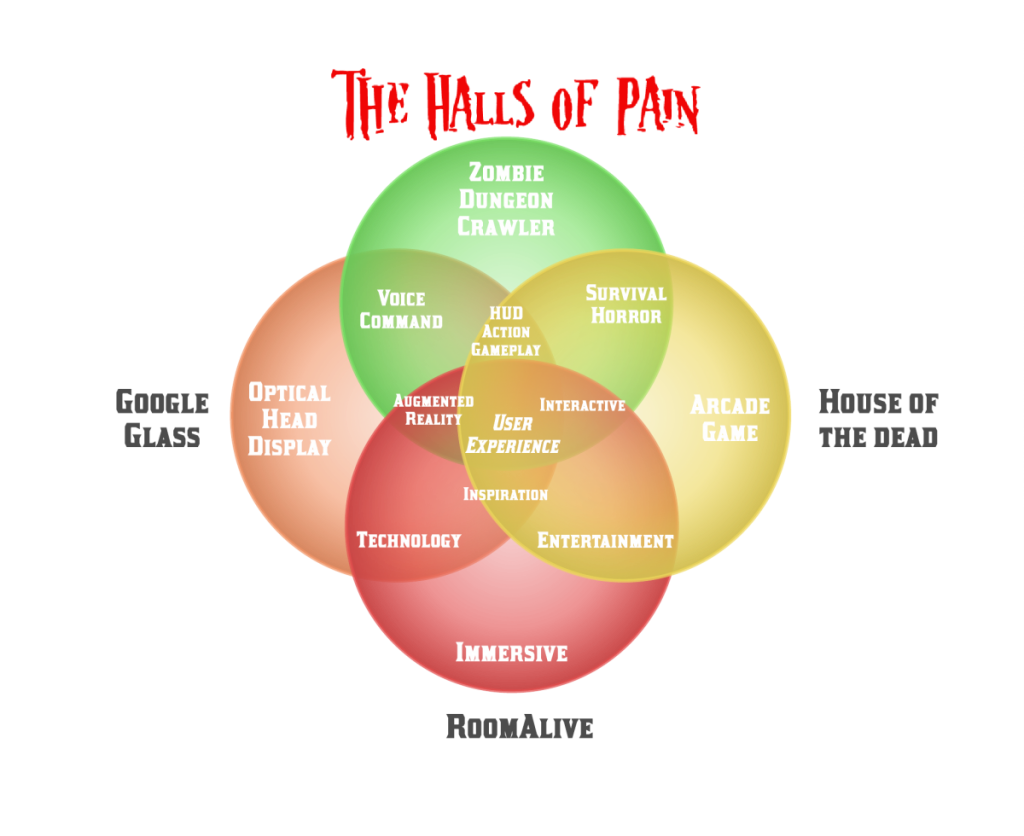Precedents
RoomAlive is a proof-of-concept prototype that transforms any room into an immersive, augmented entertainment experience, which enables new interactive projection mapping experiences that dynamically adapts content to any room. The basic building blocks of RoomAlive are projector-depth camera units, which can be combined through a scalable, distributed framework. The projector-depth camera units are individually auto-calibrating, self-localizing, and create a unified model of the room with no user intervention. It investigates the design space of gaming experiences and explore methods for dynamically mapping content based on room layout and user position.
RoomAlive relates to this project because of the immersive and augmented entertainment experience it provides. By mapping the surroundings of the room, the user is able to interact and explore their environment in an entirely new way.
Google Glass is a type of wearable technology with an optical head-mounted display. Google developed the technology with the idea of having computers everywhere. They display information similar to a smartphone, in a hands-free fashion. The device offers features like voice command operation and support for augmented reality programming.
The augmented reality features of Google Glass are what stood out most as an inspiration for The Halls of Pain. Whereas RoomAlive is limited to projecting onto surfaces, Google Glass has the ability to project into open space. It helps enhance the interactive experience by creating an added layer of depth to the game. The device is also an excellent platform for the HUD (Heads Up Display) found in most first person games. This would allow the HUD to move locally with the player, rather than being stationary on one of the room’s surfaces.
The House of the Dead is a first-person, light gun arcade game released in 1996 and internationally in 1997 by Sega. Players assume the role of agents Thomas Rogan and “G” as they fight the zombies created by the mad scientist, Dr. Curien. Throughout the course of the game, players are faced with several situations, where their actions have an effect on the direction of gameplay.
This game served as an inspiration in a few ways, starting with its Survival Horror origin. The House of the Dead is loaded with a variety of zombie types, exploration, player choice, pickups, and upgrades. The true appeal was in taking this concept, expanding upon it, and creating a more intense interactive experience.




